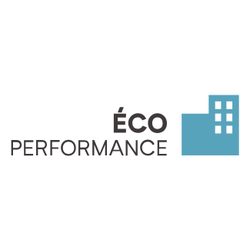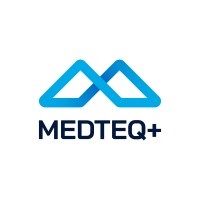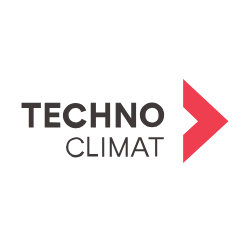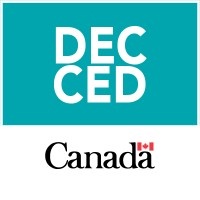
Open
Research, Innovation and Commercialization Tax Credit (CRIC)
Last Update: October 27, 2025
QC, Canada
Refundable tax credit for Quebec business R&D and precommercialization
Tax Credits
At a glance
Funding available
Financing goals
Research and experimental development
Develop a new product
Eligible Funding
- Maximum amount : 1,000,000 $
- Minimum amount : 50,000 $
- Up to 30% of project cost
Timeline
- Open Date : March 26, 2025
Eligible candidates
Eligible Industries
- Manufacturing
- Professional, scientific and technical services
Location
- Quebec
Legal structures
- For-profit business
Annual revenue
- All revenue ranges
Organisation size
- All organization sizes
Audience
- Startups
Overview
The Research, Innovation and Commercialization Tax Credit (CRIC) offers Quebec businesses a refundable tax credit of up to 30% on eligible expenses, with a maximum of $1 million, for research and development as well as pre-commercialization activities. The program aims to support scientific research, experimental development, product design, and technology validation carried out in Quebec.
Activities funded
- Conducting scientific research projects to advance technological or scientific knowledge, including both pure and applied research.
- Developing new materials, products, devices, or processes through experimental development activities.
- Improving existing materials, products, devices, or processes with technological enhancements.
- Carrying out pre-commercialization activities, such as technology trials, regulatory validations, or certifications necessary before marketing an innovation.
- Designing products to enhance form, aesthetics, functionality, or material selection in connection with prior research and development work.
Examples of admissible projects:
$ 78,000
Developing a next-generation gluten-free bakery ingredient blend
$ 155,000
Designing and testing smart wearable sensors for elderly safety
$ 180,000
Developing a biodegradable packaging from local agricultural waste
$ 134,000
Enhancement and compliance testing for real-time translation software
$ 84,000
Market study and pre-commercial pilot for drone-assisted crop monitoring
$ 173,000
Prototyping high-efficiency modular heat pumps for residential buildings
Eligibility
- The applicant must be a corporation operating a business in Quebec.
- The company must carry out eligible scientific research and experimental development (R&D) or pre-commercialization activities in Quebec, or have these activities conducted on its behalf under contract within Quebec.
- Eligible pre-commercialization activities must follow and be continuous with R&D work performed in Quebec by the company or on its behalf.
Who is eligible?
- Companies operating a business in Quebec that carry out research and experimental development (R-D) activities.
- Companies conducting pre-commercialization activities of innovations developed in Quebec.
Who is not eligible
- Companies that claim another Québec tax credit for the same expenditure (e.g., cannot apply for both CRIC and another tax credit such as the Investment and Innovation Tax Credit (C3i) for the same costs).
- Companies holding an initial certificate for the tax holiday for large investment projects cannot claim CRIC for expenses related to property used or acquired for that project.
Eligible expenses
- Salaries or wages paid to employees conducting eligible activities.
- 50% of payments made to subcontractors under contracts carried out in Quebec.
- 50% of payments to eligible public research centres, research consortia, or eligible university entities.
- Acquisition costs of equipment, excluding buildings, land, or rights to use buildings or land.
Eligible geographic areas
- Quebec
Selection criteria
- Respect of the exclusion threshold determined based on expenses and the number of employees involved in the covered activities.
- Compliance of the declared works with the definition of R&D recognized by the federal government.
- Rigorous and detailed documentation of eligible expenses.
- Justification of the use of capital assets in Quebec for 730 consecutive days.
- Verification of the origin of locally subcontracted activities, if applicable.
- Sharing of expense limits for associated companies according to established rules.
How to apply
1
Check company eligibility
- Verify that your company operates a business in Quebec
- Ensure you conduct eligible R&D or pre-commercialization activities in Quebec
- Confirm the activities are performed by your company or on your behalf under contract
2
Identify eligible activities
- Identify and document eligible R&D or pre-commercialization activities conducted in Quebec
- Ensure pre-commercialization activities are continuous with prior R&D work
3
Gather supporting expense documents
- Compile records of eligible expenses related to salaries, subcontractors, research centers, and equipment
- Ensure expenses are made in Quebec and meet admissibility requirements
4
Complete application form
- Complete the prescribed tax credit application form (available in 2025)
- Attach the completed form to your corporate tax return
5
Submit application with tax return
- Submit your corporate tax return along with the completed form
Additional information
- The prescribed application form for the CRIC will be made available in 2025.
- Quebec's legislation is harmonized with federal definitions of R&D for program purposes.
- The Canada Revenue Agency is responsible for the scientific review of R&D work claimed under this program.
- Detailed government documents, such as the Budget 2025-2026 and additional information releases, provide further reference for applicants.
Apply to this program
Frequently Asked Questions about the Research, Innovation and Commercialization Tax Credit (CRIC) Program
Here are answers to the most common questions about the Research, Innovation and Commercialization Tax Credit (CRIC). This section explains what the program is, how much funding is available, eligibility requirements, application deadlines, and other important details to help you determine if this grant is right for your business.
What is the Research, Innovation and Commercialization Tax Credit (CRIC)?
How much funding can be received?
Who is eligible for the Research, Innovation and Commercialization Tax Credit (CRIC) program?
What expenses are eligible under Research, Innovation and Commercialization Tax Credit (CRIC)?
Where is the Research, Innovation and Commercialization Tax Credit (CRIC) available?
Is the Research, Innovation and Commercialization Tax Credit (CRIC) a grant, loan, or tax credit?
Who are the financial supporters of the Research, Innovation and Commercialization Tax Credit (CRIC)?
Apply to this program
More programs like this

Grant and FundingClosed
NovaScience Program - Support for projects in scientific culture and innovation
Gouvernement du QuébecNovaScience promotes scientific culture and innovation development

Grant and FundingOpen
ÉcoPerformance — Standard Analysis Stream
Gouvernement du QuébecSupports feasibility analyses to reduce greenhouse gas emissions

Grant and FundingOpening Soon
MEDTEQ+ — AVISÉ program
Consortium de recherche et d’innovation en technologies médicales du QuébecFunding for validation and evaluation of innovative health technologies

Grant and FundingOpen
Technoclimat
Environnement Québec (MELCC)Financial assistance for the demonstration of new technologies in Quebec

Grant and FundingClosed
NovaScience Program — Support for employment in research and innovation
Gouvernement du QuébecNovaScience supports innovation job integration in Quebec businesses

Partnering and CollaborationGrant and FundingClosed
International Climate Cooperation Program (ICCP)
Environnement Québec (MELCC)Supports Quebec-driven climate action projects in francophone countries

Partnering and CollaborationGrant and FundingClosed
Aboriginal Aquatic Resource And Oceans Management (AAROM) Program
Fisheries and Oceans Canada (DFO)Supports Indigenous aquatic resource and oceans management capacity development

Grant and FundingClosed
Financial Assistance Program for the Promotion of French – Stream 1
Office québécois de la langue française (OQLF)Money to promote the use of French in the office

Grant and FundingOpen
Regional defence investment initiative (RDII) – Quebec
Canada Economic Development for Quebec Regions (CED)Supports Quebec organizations integrating into domestic and international defence supply chains

Grant and FundingClosed
PSCE – Component 2
Investissement Québec (IQ)Non-repayable funding to support SMEs’ export market diversification
Sign up to our platform to access the Research, Innovation and Commercialization Tax Credit (CRIC) information sheet for free
Get access to 4,000+ programs, practical guides, personalized alerts, and an AI assistant to support your grant applications.